Filter by
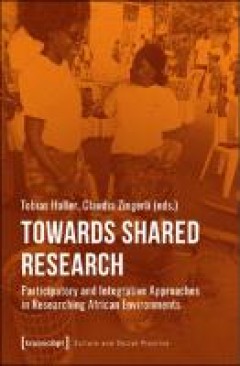
Toward shared Research: participatory and integrative approach in researching…
Intercultural, interdisciplinary, and transdisciplinary research interfaces confront researchers with considerable challenges. Towards Shared Research portrays how scholars from different disciplinary and geographical origins and at various academic career stages strive for a more inclusive and better understanding of knowledge about African environments. The book is addressed to researchers, f…
- Edition
- -
- ISBN/ISSN
- 9783839451502
- Collation
- 186p.: ill.
- Series Title
- -
- Call Number
- 630.967 TOW t
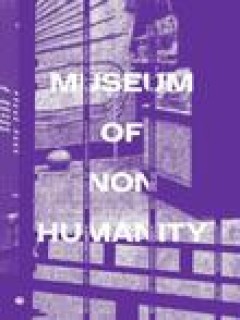
Museum of nonhumanity
Museum of Nonhumanity is the catalogue for a full-size touring museum that presents the history of the distinction between humans and animals, and the way that this artificial boundary has been used to oppress human and nonhuman beings over long historical periods. Throughout history, declaring a group to be nonhuman or subhuman has been an effective tool for justifying slavery, oppression, med…
- Edition
- 1st edition.
- ISBN/ISSN
- 9781950192120
- Collation
- 281p.:
- Series Title
- -
- Call Number
- B105.A55 GUS m
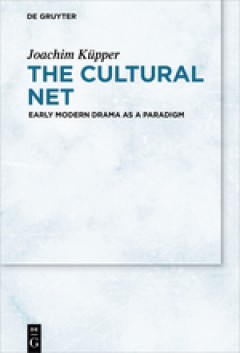
The cultural net: early modern drama as a paradigm
This volume offers a new theoretical approach to cultural production inspired by the metaphor of culture as a virtual network. Following a thorough outline of this approach, the theoretical framework is elucidated in a second part through examples drawn from early modern European drama. A third and final part then presents a critical discussion of the concept of national culture and literature,…
- Edition
- -
- ISBN/ISSN
- 9783110536638
- Collation
- vi, 328p.
- Series Title
- -
- Call Number
- 800 KUP t
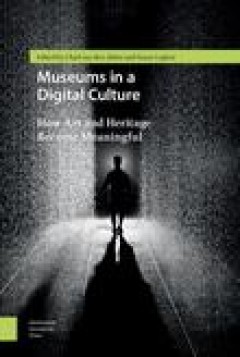
Museums in a Digital Culture
The experience of engaging with art and history has been utterly transformed by information and communications technology in recent decades. We now have virtual, mediated access to countless heritage collections and assemblages of artworks, which we intuitively browse and navigate in a way that wasn't possible until very recently. This collection of essays takes up the question of the cultural …
- Edition
- -
- ISBN/ISSN
- 9789089646613
- Collation
- 143p.: ill.
- Series Title
- -
- Call Number
- 069.0285 VAN m

Social democractic parties and the working class : new voting patterns
This open access book carefully explores the relationship between social democracy and its working-class electorate in Western Europe. Relying on different indicators, it demonstrates an important transformation in the class basis of social democracy. At the beginning of the twenty-first century, the working-class vote is strongly fragmented and social democratic parties face competition on mul…
- Edition
- -
- ISBN/ISSN
- 9783030462390
- Collation
- xvii, 111p. : ill.
- Series Title
- -
- Call Number
- 324.2174 REN s
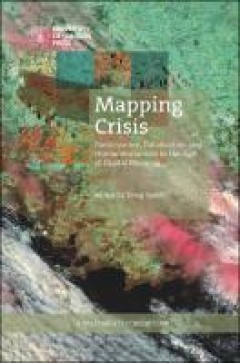
Mapping crisis: participation, datafication and humanitarianism in the age of…
The digital age has thrown questions of representation, participation and humanitarianism back to the fore, as machine learning, algorithms and big data centres take over the process of mapping the subjugated and subaltern. Since the rise of Google Earth in 2005, there has been an explosion in the use of mapping tools to quantify and assess the needs of those in crisis, including those affected…
- Edition
- -
- ISBN/ISSN
- 9781912250387
- Collation
- xviii, 259p.: ill
- Series Title
- -
- Call Number
- 526 MAP m

The science of citizen science
This open access book discusses how the involvement of citizens into scientific endeavors is expected to contribute to solve the big challenges of our time, such as climate change and the loss of biodiversity, growing inequalities within and between societies, and the sustainability turn. The field of citizen science has been growing in recent decades. Many different stakeholders from scientist…
- Edition
- -
- ISBN/ISSN
- 9783030582784
- Collation
- vii, 529p. : ill.
- Series Title
- -
- Call Number
- 303.483 SCI s
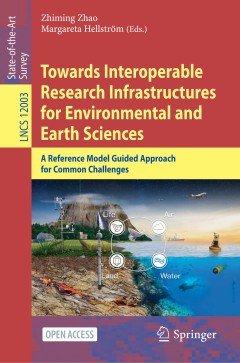
Towards interoperable research infrastructures for environmental and earth sc…
This open access book summarises the latest developments on data management in the EU H2020 ENVRIplus project, which brought together more than 20 environmental and Earth science research infrastructures into a single community. It provides readers with a systematic overview of the common challenges faced by research infrastructures and how a ‘reference model guided’ engineering approach ca…
- Edition
- -
- ISBN/ISSN
- 9783030528294
- Collation
- -
- Series Title
- -
- Call Number
- 333.7072 TOW t
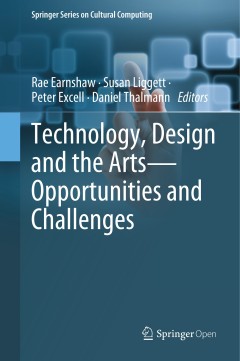
Technology, design and the arts - opportunities and challenges
This open access book details the relationship between the artist and their created works, using tools such as information technology, computer environments, and interactive devices, for a range of information sources and application domains. This has produced new kinds of created works which can be viewed, explored, and interacted with, either as an installation or via a virtual environment s…
- Edition
- -
- ISBN/ISSN
- 9783030420970
- Collation
- xxv, 387p. : ill.
- Series Title
- -
- Call Number
- 700.105 TEC t
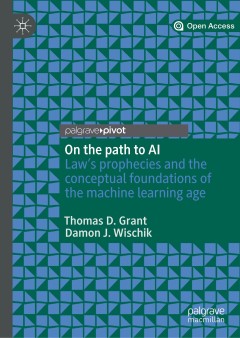
On the path to AI : law's prophecies and the conceptual foundations of the ma…
This open access book explores machine learning and its impact on how we make sense of the world. It does so by bringing together two ‘revolutions’ in a surprising analogy: the revolution of machine learning, which has placed computing on the path to artificial intelligence, and the revolution in thinking about the law that was spurred by Oliver Wendell Holmes Jr in the last two decades of …
- Edition
- -
- ISBN/ISSN
- 9783030435820
- Collation
- xxii, 147p. : ill.
- Series Title
- -
- Call Number
- 006.3 GRA o
 Computer Science, Information & General Works
Computer Science, Information & General Works  Philosophy & Psychology
Philosophy & Psychology  Religion
Religion  Social Sciences
Social Sciences  Language
Language  Pure Science
Pure Science  Applied Sciences
Applied Sciences  Art & Recreation
Art & Recreation  Literature
Literature  History & Geography
History & Geography